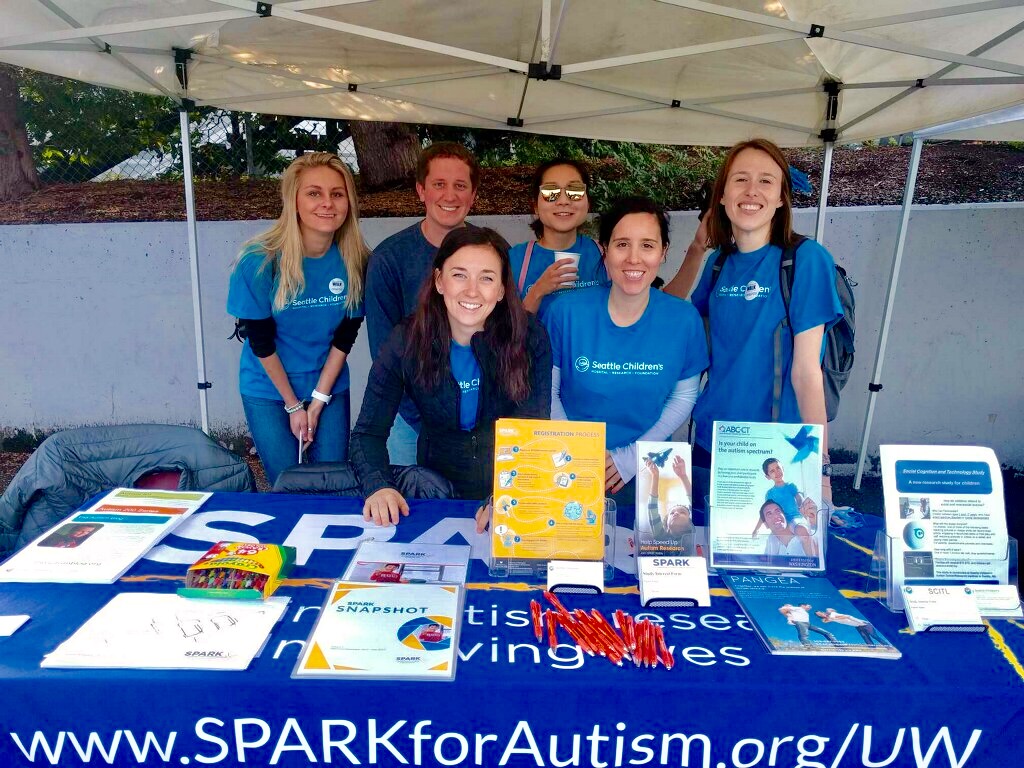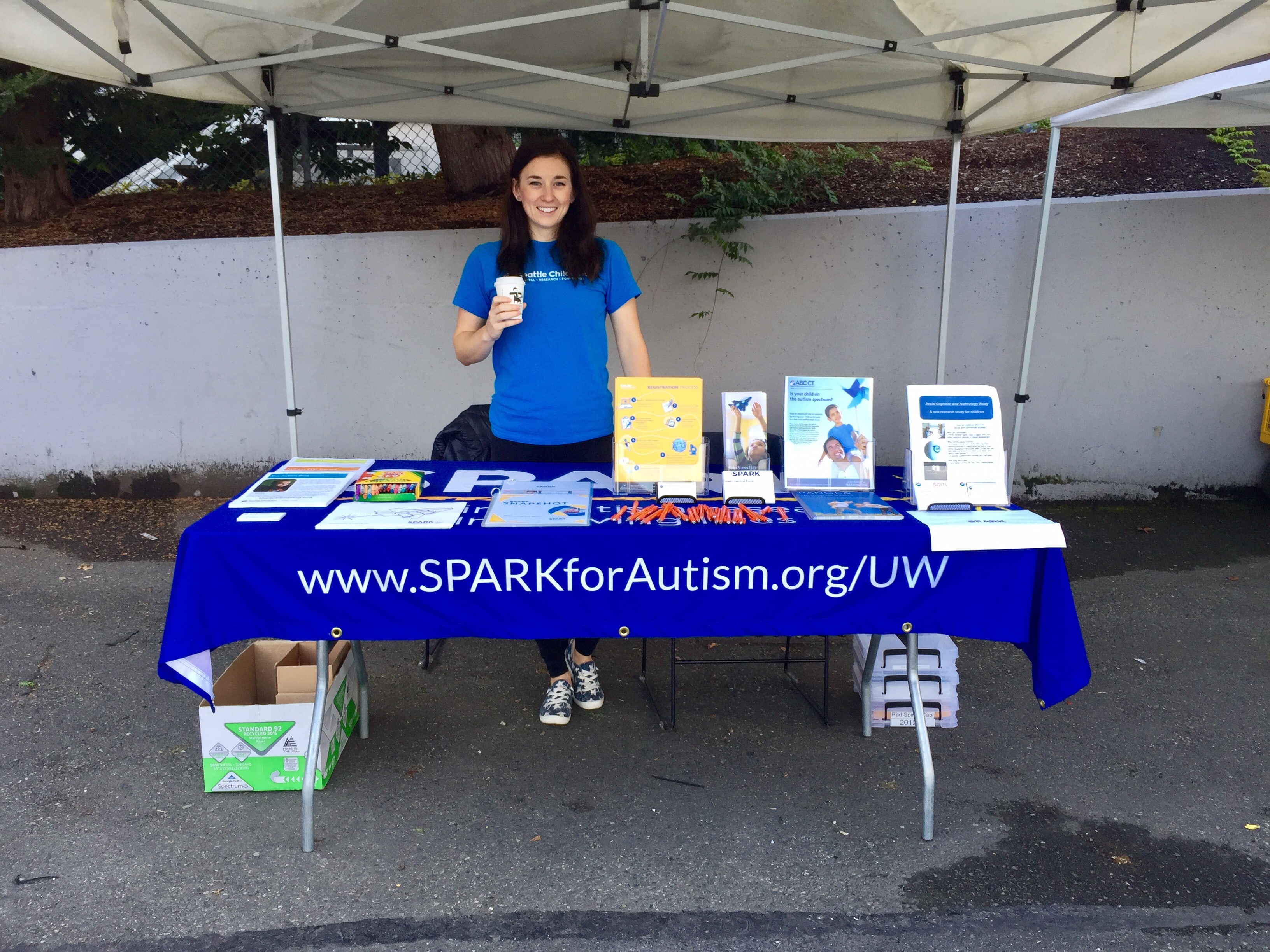The Bernier Lab and Seattle Children’s Autism Center staff attended the September 2017 Autism Speaks Walk at the Seattle Center. They talked with families about research opportunities, including the SPARK study, ABC-CT study, PANGEA study, and many others. The turn out for the walk was great with many enthusiastic families attending! Thank you to our staff for taking part to support this wonderful event!
Category Archives: Uncategorized
Post-doc Appreciation Week
It’s post-doc appreciation week! Here at the Bernier Lab, we are fortunate to have 4 amazing post-docs working on our team.
Caitlin Hudac: Caitlin is an integral member of our EEG team and received her Ph.D. in Developmental Psychology from the University of Nebraska-Lincoln. Her research interests include the social brain and socioemotional development in children with and without autism. Check out a recent publication of her’s here.
Anne Arnett: Anne is also a vital part of the EEG team here at the Bernier Lab, and also plays a role in our clinical team. She received her Ph.D. in Clinical Psychology from the University of Denver and is interested in research regarding genetic and neuropsychological factors associated with atypical attention, memory, and learning. Check out an article she wrote on sex difference in dyslexia here.
Jessica Peterson: Jess is one of the more experienced members of our clinical team. She received her Ph.D. in Clinical Psychology from Seattle Pacific University and is focused on research pertaining to autism spectrum disorder- from diagnoses and treatment to psychiatric comorbidity in children and adolescents. Take a view at a publication she had a hand in bringing to life regarding developmental trajectories for young children with 16p11.2 copy number variation here.
Jen Beighley: Jen is also a big part of our clinical team here at the RabLab! She received her Ph.D. in Clinical Psychology from Louisiana State University and is interested in research relating to early identification, diagnosis, and treatment of children with developmental disabilities. You can find an article she wrote on the differences in stereotypic behavior in adults with ASD using the DSM-IV-TR and the DSM-IV here.
We are so incredibly lucky to have such smart and accomplished post-docs here at our lab! Their passion for research and working with families helps keep our lab running both positively and efficiently!
We’re going to the zoo zoo zoo!
Staff from the Bernier Lab visited Seattle’s Woodland Park Zoo to discuss collaborating on some future projects. While we were there, we got to meet Molly the Porcupine, up close and personal!
Here are some fun pictures of the adorable Molly. Thank you Woodland Park Zoo for the meet and greet!
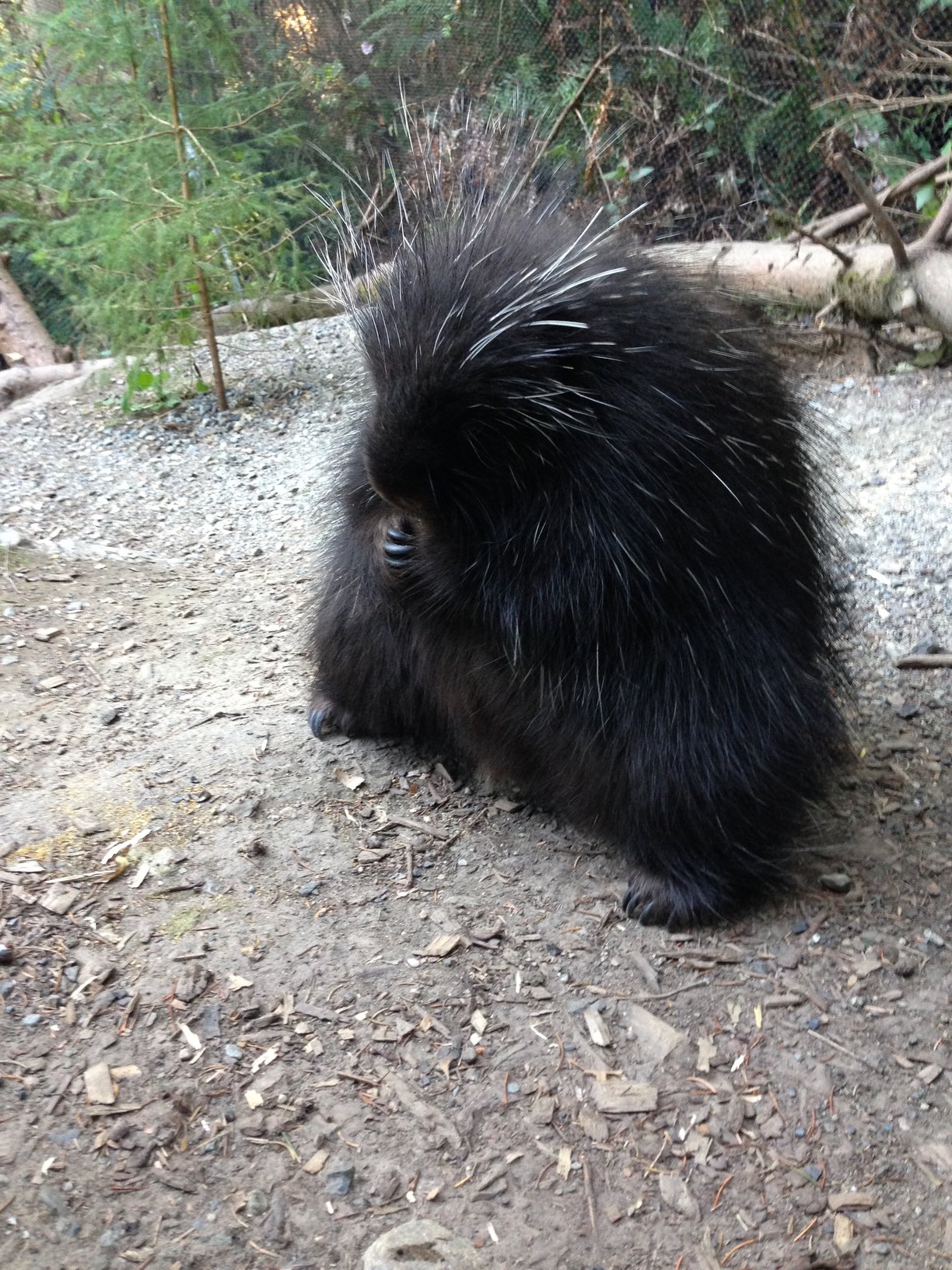
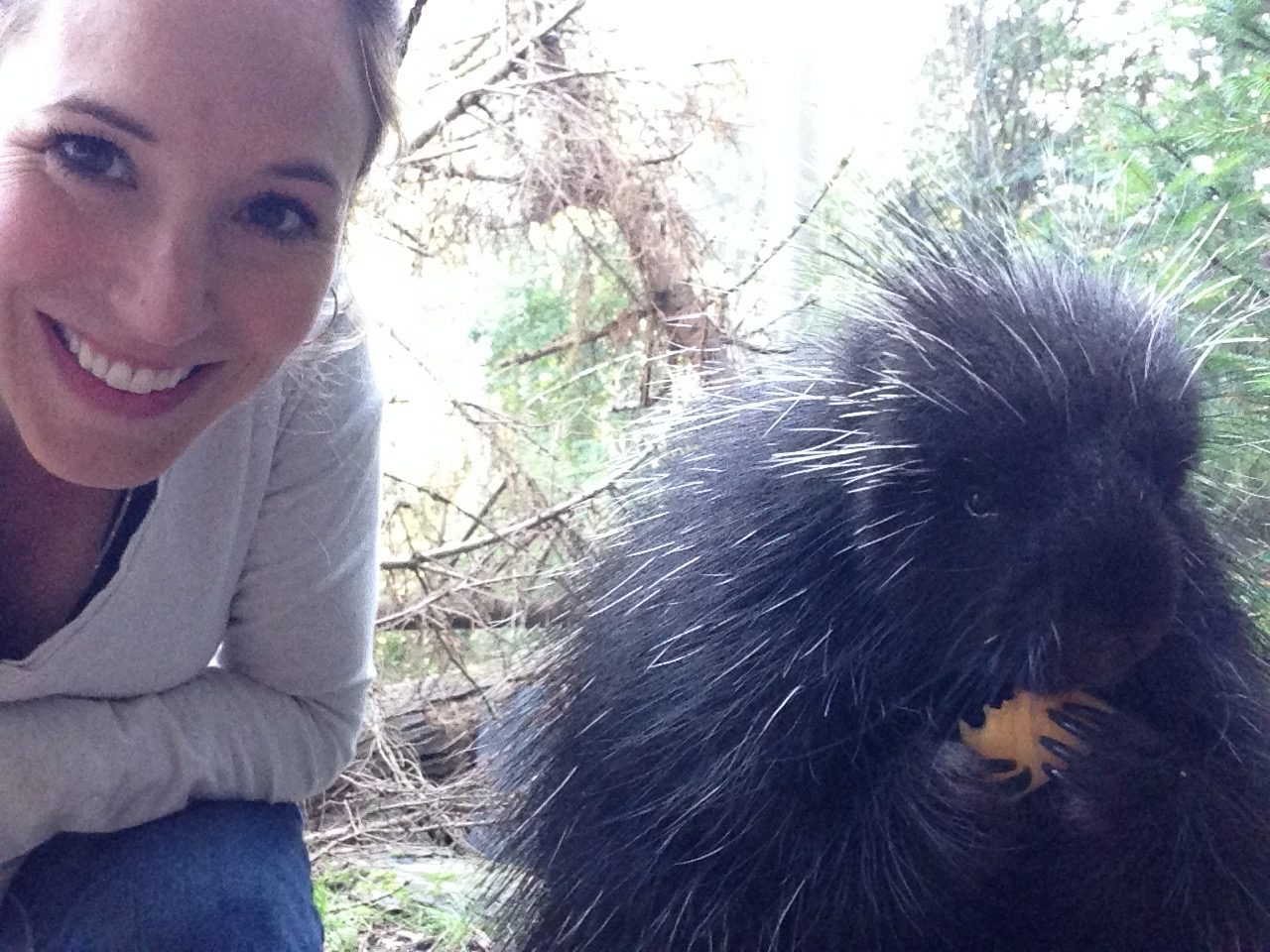
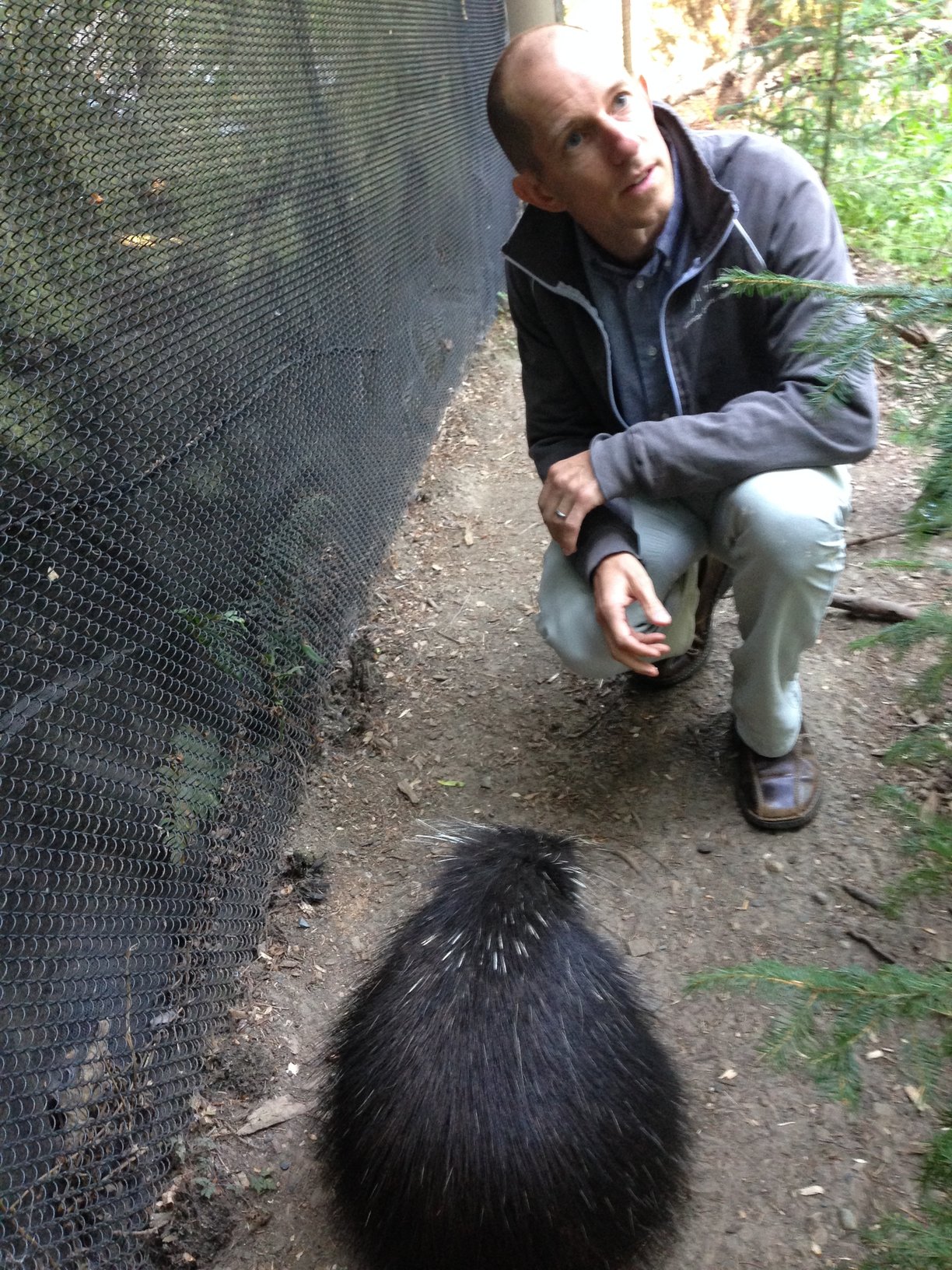
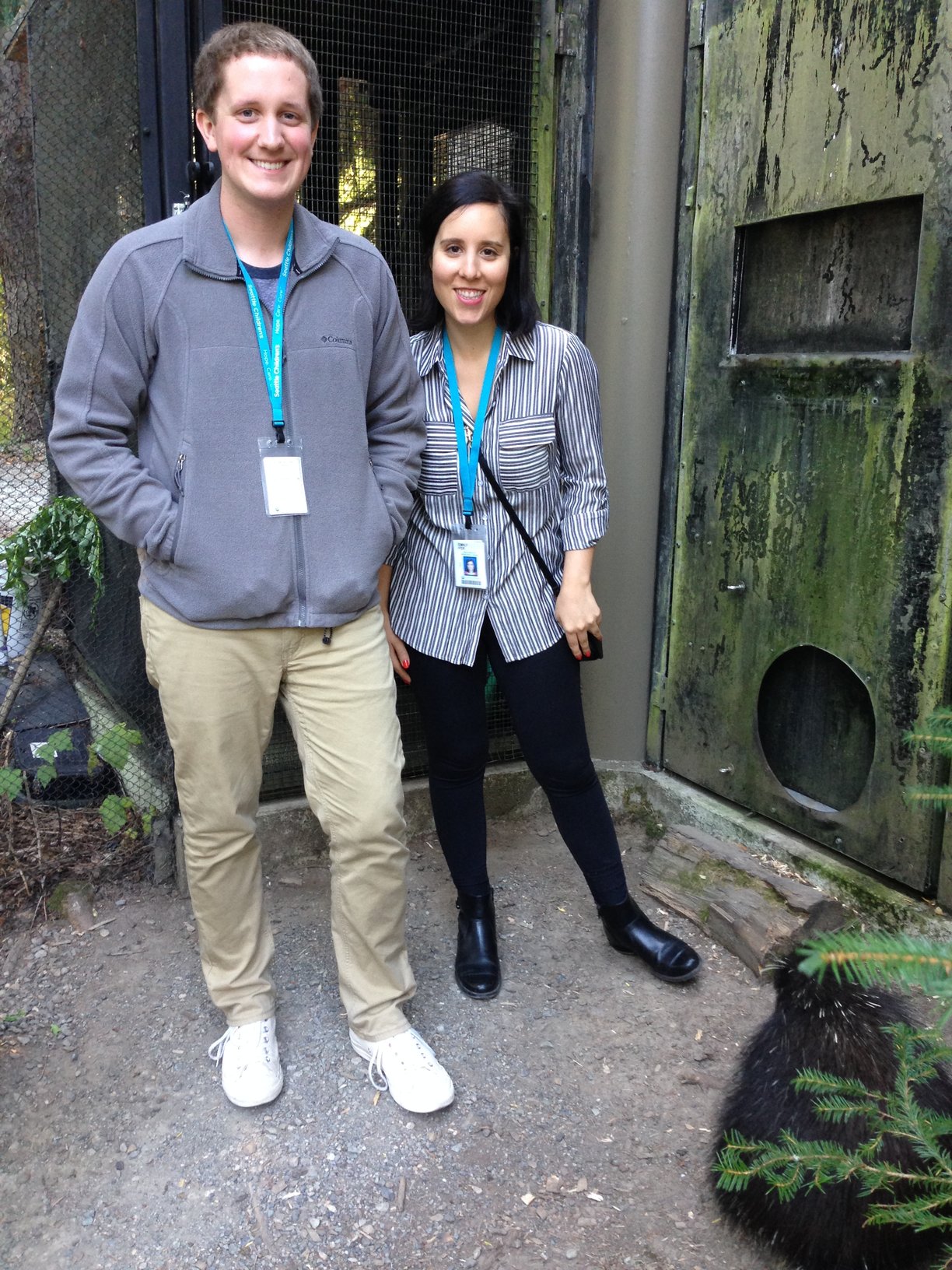
New publication on how Exonic Mosaic Mutations contribute to the risk of ASD
Exonic Mosaic Mutations Contribute Risk for Autism Spectrum Disorder
Krupp, D.R., Barnard, R.A., Duffourd, Y., Evans, S.A., Mulqueen, R.M., Bernier, R., Riviere, JB., Fombonne, E., O’Roak, B.J. (2017) The Journal of Human Genetics.
Full Article: Exonic Mosaic Mutations ASD 2017-min
ABSTRACT
Study: Antidepressants and genetic risk factors increase risk of ASD
A recent study coauthored by the Bernier Lab’s Dr. Raphael Bernier and Dr. Caitlin Hudac found that antidepressants taken during pregnancy may be associated with an increased severity in autism when combined with underlying genetic risk factors.
Click HERE to read the full article
http://www.channel3000.com/health/study-antidepressants-and-genetic-risk-factors-play-role-in-autism/606016191
Rare Autism-Related Genetic Consultation Clinic at Seattle Children’s Autism Center
The Seattle Children’s Autism Center has launched the new Rare Autism-Related Genetic Consultation Clinic (RARE Clinic)!
Children born with certain genetic changes (mutations) may have autism spectrum disorder; speech and language disorders; intellectual disabilities; physical differences; seizures; gastrointestinal problems; or sleep concerns. The RARE Clinic will provide a short-term consultation service, usually 3 to 4 appointments in a single day, to help address concerns related to your child’s genetic change. Your child will be see by experts in psychology; speech and language; and pediatrics.
For more information families should call 206-987-8080 and visit the Seattle Children’s Autism Center website!
Genetic changes include:
- 16p11.2 deletion/duplication
- ADNP
- CHD2
- CHD8
- DYRK1A
- GRIN2B
- POGZ
- SCN2A
- TRIP12
